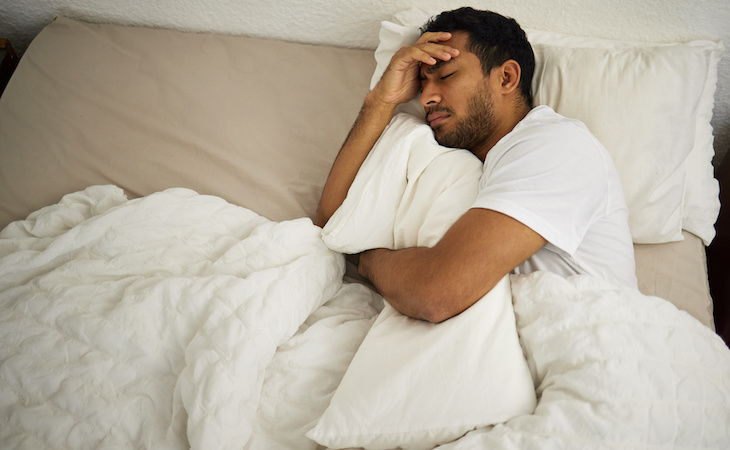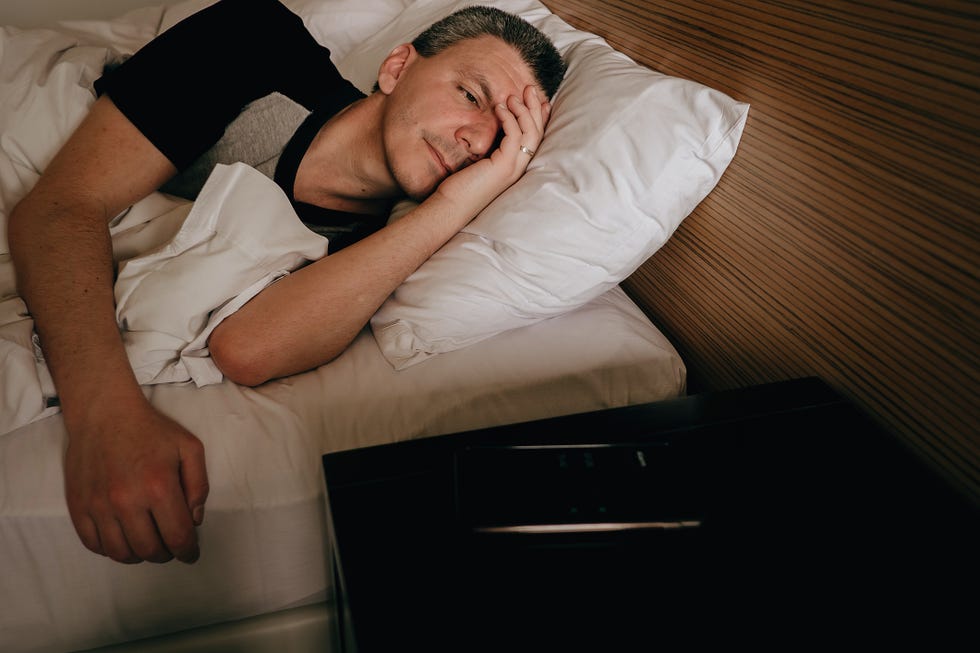Advanced Sleep Therapy - Achieve Deep, Restful Sleep
Advanced Sleep Therapy - Achieve Deep, Restful Sleep
Blog Article
Reliable Therapy Solutions for Managing Rest Disorders and Enhancing Peaceful Sleep
In the realm of medical care, the management of rest conditions and the pursuit for relaxing sleep are crucial components of general health. As we navigate the complex landscape of rest disorders and seek to boost our sleep experience, a deeper understanding of these treatment remedies might hold the key to unlocking a much more relaxing and fulfilling restorative journey.
Cognitive Behavioral Therapy for Sleeping Disorders (CBT-I)
Cognitive Behavior Modification for Sleeping Disorders (CBT-I) is an organized, evidence-based therapy strategy that concentrates on dealing with the hidden factors adding to sleep disturbances. This type of therapy aims to customize actions and thoughts that worsen sleeping disorders, inevitably advertising healthy sleep patterns. CBT-I usually involves several essential components, including cognitive treatment, sleep limitation, stimulus control, and sleep hygiene education and learning.
Cognitive therapy aids individuals recognize and transform adverse idea patterns and ideas concerning sleep that may be hindering their capability to fall or stay asleep. Rest constraint entails limiting the amount of time invested in bed to match the individual's actual rest duration, thus increasing rest performance (sleep deprivation help). Stimulation control techniques aid develop a strong organization between the bed and rest by motivating people to head to bed only when drowsy and to prevent participating in stimulating tasks in bed
In addition, rest health education focuses on establishing healthy sleep practices, such as preserving a constant rest timetable, producing a relaxing going to bed routine, and maximizing the sleep setting. By dealing with these factors thoroughly, CBT-I offers an efficient non-pharmacological intervention for handling sleeping disorders and boosting overall rest quality.
Sleep Hygiene Practices
Having developed the structure of cognitive restructuring and behavioral adjustments in attending to sleeping disorders via Cognitive Behavior modification for Sleep Problems (CBT-I), the focus now changes towards checking out important Rest Health Practices for keeping optimal sleep top quality and overall well-being.
Rest health techniques encompass a series of routines and ecological factors that can dramatically impact one's ability to drop asleep and remain asleep throughout the evening. Constant sleep and wake times, developing a relaxing bedtime regimen, and optimizing the sleep setting by keeping it dark, peaceful, and cool are crucial elements of good sleep health. Limiting exposure to screens before bedtime, preventing stimulants like high levels of caffeine near going to bed, and participating in regular physical activity during the day can additionally promote better sleep quality.
In addition, exercising relaxation techniques such as deep breathing workouts or meditation prior to bed can assist calm the mind and prepare the body for rest. By integrating these sleep health practices into one's daily regimen, individuals can develop a healthy and balanced sleep pattern that sustains peaceful sleep and total wellness.
Relaxation Strategies and Mindfulness
Carrying out leisure strategies and mindfulness techniques can play a critical function in cultivating a feeling of tranquility and promoting high quality rest. In addition, guided imagery can assist deliver people to a serene location in their minds, assisting in stress reduction and improving sleep high quality.
By including these techniques into a bedtime regimen, people can indicate to their bodies that it is time to go to this site relax and prepare for sleep. Overall, incorporating leisure techniques and mindfulness practices can dramatically add to handling sleep problems and improving overall rest top quality.

Medicine Options for Rest Disorders
After discovering leisure strategies and mindfulness practices as non-pharmacological interventions for improving sleep high quality, it is important to consider medicine alternatives for people with sleep disorders. In cases where lifestyle changes and therapy do not supply enough alleviation, medication can be a valuable tool in managing sleep disturbances.
Frequently recommended medications for rest problems include benzodiazepines, non-benzodiazepine hypnotics, antidepressants, and melatonin receptor agonists. Antidepressants, such as trazodone, can be useful for people with co-occurring anxiety and sleep disruptions - insomnia solutions.
It is critical for people to talk to a doctor to establish one of the most suitable drug alternative based on their specific rest condition and medical history.
Light Treatment for Circadian Rhythm Law
Light treatment, also recognized as phototherapy, is a non-invasive therapy method made use of to regulate body clocks and improve sleep-wake cycles. This therapy includes exposure to brilliant light that simulates natural sunlight, which assists to reset the body's internal clock. By subjecting people to specific wavelengths of light, typically in the morning or night depending on the desired impact, light treatment can effectively change the body clock to advertise wakefulness throughout the day my website and enhance relaxing rest at evening.
Research has revealed that light treatment can be specifically helpful for people with circadian rhythm disorders, such as postponed rest phase syndrome or jet lag. It can additionally be helpful for those experiencing seasonal depression (SAD), a kind of clinical depression that typically occurs during the winter season when natural light exposure is minimized. Light treatment is usually well-tolerated and can be made use of together with various other therapy approaches for rest disorders to optimize results and enhance general sleep high quality.
Final Thought
In final thought, efficient treatment services for taking care of rest disorders and improving restful rest consist of Cognitive Behavior modification for Sleep Problems (CBT-I), sleep hygiene practices, leisure strategies and mindfulness, medication options, and light treatment for body clock guideline. These approaches can assist individuals improve their rest high sleep specialist quality and overall well-being. It is essential to seek advice from a health care carrier to determine the most suitable strategy for resolving rest problems.
As we navigate the detailed landscape of rest conditions and seek to enhance our rest experience, a much deeper understanding of these therapy solutions might hold the secret to unlocking a much more refreshing and fulfilling corrective journey.
Sleep constraint entails limiting the amount of time spent in bed to match the person's actual sleep duration, thereby raising sleep performance. Regular sleep and wake times, developing a relaxing going to bed regimen, and maximizing the sleep setting by keeping it dark, silent, and cool are vital elements of good sleep health. Light treatment is typically well-tolerated and can be utilized in combination with other therapy approaches for sleep problems to optimize results and boost overall rest quality.

Report this page